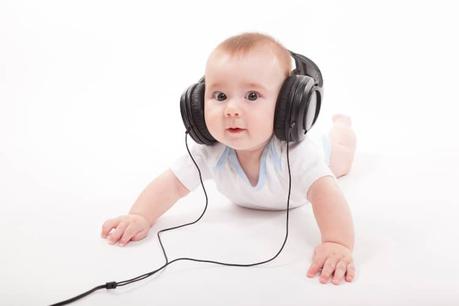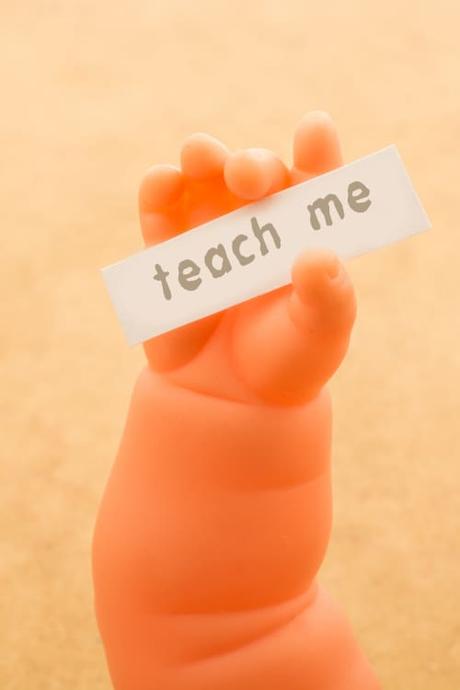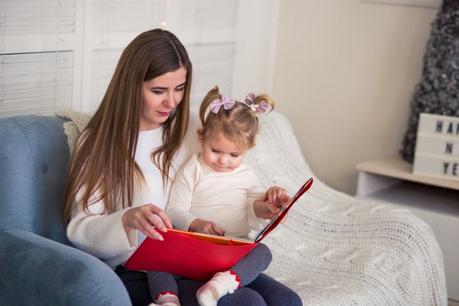There is nothing quite like hearing your baby’s first words – except hearing their second, third, and fourth words!
But for some parents, hearing those words requires a longer wait. What if your 15 month old only babbles? Is that normal, or is there something you can do to stimulate your baby’s speech?
If you have concerns about your baby’s development, you’re not alone. Despite the competitive parenting culture that encourages early milestones, children develop at their own unique pace.
Understanding the basics of speech and language development in early childhood can do a lot to put new parents at ease!
If your 15 month old is not talking, just babbling, it means they have a lot of hard developmental work to do! Read on to learn about the key to turning baby talk into early words. You’ll be hearing “Mama” in no time!
Content:
- How Do Babies Develop Language?
- The First Stage: Babies Learn Sounds
- The Second Stage: Babies Learn Words
- Gender and Language
- Health and Language
- How Can Parents Help?
How Do Babies Develop Language?

If you have more than one child, it can be very easy to see the ways in which every child is born with unique strengths.
One baby might run almost before they can walk; another might be a natural conversationalist. If this is your first child, however, it can be harder to put his or her strengths and weaknesses in context.
Uneven development is common and often a result of two words you might have heard: nature and nurture. Nature refers to your child’s natural and inherited affinities, such as your “born athlete” rocking tummy time from day one.
Nurture refers to the environment where they are being raised, including the people and media that they encounter every day.
The good news is that you have some control over these factors! Both of these factors (and more) can determine just how quickly a child masters developmental milestones.
Developmental psychologists and speech pathologists describe three basic stages of language development.
Your baby must reach these stages in order, so there is no way to skip ahead. This is true for all languages, including American Sign Language! Even Deaf babies babble with their hands!
If your 15 month old only babbles, they may still be working through a previous stage. It doesn’t mean disaster! It’s possible they just need a little more time or a tweak to the environment.
The First Stage: Babies Learn Sounds

In the English language, we have 44 unique phonemes. A phoneme is a unique unit of sound. When combined, phonemes form the words that we speak and hear.
There are far more than 44 phonemes in the world, however! Between all of the world languages combined, there are about 150 unique phonemes! Babies, being new citizens of the world, don’t immediately know which of those sounds belongs to our language and which don’t.
The first step of language development is phonemic awareness – the ability to recognize the phonemes that belong to the language that they are learning.
It’s a key reading skill, too. That’s why early childhood classrooms are full of nursery rhymes, lyrical picture books, and many, many songs!
That’s where environment (and “nurture”) first comes in. Children cannot learn phonemic awareness unless they have exposure to sound in an engaging and meaningful way.
Yes, the best way to help your baby develop phonemic awareness is to talk to them constantly!
You may feel silly, but you might even consider narrating everything that you or your baby does.
It allows your baby to understand the connection between language and the world around them. It can encourage the process of matching words to actions.
First Stage Milestones
On average, this first stage of language development lasts from birth through about six months of age. If it takes your baby a little longer to reach these particular milestones, it just means their brand new brains are still making connections.
Their limited infant energy may be going into physical, cognitive tasks right now, and that language will catch up later!
At birth, most babies can hear and respond to pitch, stress, and pace in language. This is why babies seem to react when you talk to them in a “sing-song” voice. Every sound is new, and they are fascinated!
By four months, many babies can distinguish between noise and language. In essence, they understand that a barking dog and mommy’s voice are different – one is communicating, and one is not.
By the sixth months, most babies begin babbling. They are trying out all of the phonemes that they have learned! They have not yet developed phonemic awareness, so they aren’t clear on which of those sounds belongs to our language and which is just a lot of fun to make!
The Second Stage: Babies Learn Words

If you are concerned that your 15 month old only babbles, they are probably in the early second stage of language development. They are still playing with the sounds of the world, and discerning which to use to communicate with you.
This is a truly playful stage of development. The phonemes are the toys, and the sounds your child produces is the game! They will practice stringing sounds together.
Some children might begin to make connections between those sounds and the world, while others might take longer.
If your child’s speech resembles language but isn’t yet coherent, they may still be learning “word boundaries.”
All words in the English language are made up of those 44 phonemes, so it can be tricky to figure out where one word ends and the next begins! This is often remedied with experience, as children hear and process more words.
When children begin combining sounds, they are no longer producing phonemes – they are producing morphemes. They are the sounds that combine to form words.
For a 15 month old who is not talking, just babbling, the key is exposure. You may have to listen to a lot of babbling before all of the skills they are practicing come together!
It’s important to notice that the babbling that your 15 month old is doing now is not the same babbling that they were doing at sixth months, or eight months, or twelve months.
They are learning new skills all the time, so even development within babbling is noteworthy!
Second Stage Milestones
Babies usually linger somewhere in the second stage of language development between the ages of eight and eighteen months of age.
If your 15 month old only babbles, they are still within a normal window of development. Three months is a massive percentage of a baby’s life, and a lot can happen in that time!
At eight months of age, many babies begin to figure out word boundaries. That doesn’t necessarily mean that they understand the meanings of the words that they hear.
Their receptive language, or the language that they understand, will increase. They will know what you mean when you say “cup” or “doggie” or “night night,” and will demonstrate that understanding through behavior.
By about one year of age, babies begin to mimic the words that they hear used around them.
If your fifteen month old only babbles, they may not yet be successful at mimicking those sounds.
By eighteen months of age, children learn how to use the language. They will usually begin using nouns to label objects, with verbs following shortly after.
This is when all of that hard developmental work begins to pay off, as their sounds and words begin to resemble what we know as language!
Sentences won’t come until the third stage, and not until about twenty-four months of age.
Gender and Language
If your 15 month old only babbles, there is a good chance that they are a boy. This is because there is a connection between gender and language development.
This is another result of nature and nurture – boys are socialized differently, which can lead to the progression of different skills at different times.
They are also exposed to testosterone, which many speech professionals link to language delays.
On average, girls will breeze through the language stages a lot faster than boys with and without delays.
This might be a strength in girls rather than a deficit in boys. Girls have been shown to gesture more commonly than boys, which helps hasten their ability to communicate.
If your daughter is still babbling, however, that’s not necessarily a cause for extra concern. There may be some things about the language that she is still figuring out, and that’s okay!
Health and Language
It’s important to remember that language is a physical process. Think about all of the muscles you need to access to use speech! Hearing also plays a role.
As a result, health and physical development can sometimes affect the speed of language development.
Ear Infections
If your 15 month old only babbles, it may be because ear infections have led to delays in their ability to hear and process language.
Daycare centers are language-rich environments, full of stimulation. They are also full of germs! The chronic effects of ear infections or other drainage issues can lead to delays, especially if they happen during critical periods of development.
If your child experiences ear infections or you suspect that they may have trouble hearing for another reason, it’s best to bring your concerns to the pediatrician. Once your child is hearing well, their language skills will typically follow!
Physical Development
Can you tie a cherry stem in a knot using only your tongue? For young children, that is what producing sounds feels like! It is hard work, and the physical aspects of speech don’t always come naturally!
If your child was born with a cleft lip and palate, that can also contribute to physical delays in language development.
It is also worthwhile to confirm that your child is not experiencing a tongue tie, which can make it very challenging to produce certain sounds.
Physically, many children cannot make certain sounds (such as /S/, /R/, and /L/) until around the age of seven! This is normal, and your child’s teachers will be able to guide you regarding normal speech development in Kindergarten and beyond.
How Can Parents Help?

Remember nature and nurture? There is no changing a child’s nature, but you have a lot of control over the environment. Minor tweaks to the way you interact with your baby can lead to massive improvements!
Talk, Talk, Talk!
Talk, and don’t stop talking! The more that your baby hears, the more information they will be able to use to make sense of the way that language works!
Make sure that you have your child’s attention when you begin talking by encouraging eye contact. You might even begin sentences by using them with simple commands, such as “Look,” or “Come here.”
Describe what you are doing to help them make connections between words, objects, and actions.
You shouldn’t use “baby talk” when you talk to your child, because that will not help them to understand how language really works.
You can, however, make your speech more engaging by playing with pitch and slowing your words down.
Books Before Tech
Singing and reading are key to filling your child’s life with rich, novel language. Make reading stories a regular part of your baby’s routine.
Don’t be surprised if they ask for the same book again and again, as this will help them process it!
Likewise, the American Academy of Pediatrics suggests that parents avoid screentime for children below the age of two.
Even educational programming doesn’t provide the kind of feedback that children need. Children of all ages learn best through active experiences!
Your 15 Month Old Only Babbles…for Now!
Normal child development is a spectrum, and children are not robots – they pick up different skills at different times! That’s what makes the world an exciting and unique place to grow and learn!
If your 15 month old is babbling, it means that they are in a critical stage of language development and are doing the hard work of childhood – growing!
As you now understand, it’s not that your 15 month old only babbles! They have come a long way since infancy, and their language skills are a work in progress! Keep talking, keep reading, and be patient as your little flower blooms into a chatty toddler!
In the meantime, if you have other questions about your child’s growth and development, My Milky Baby is full of articles that can help. Check out reviews of the best baby products for new moms!
